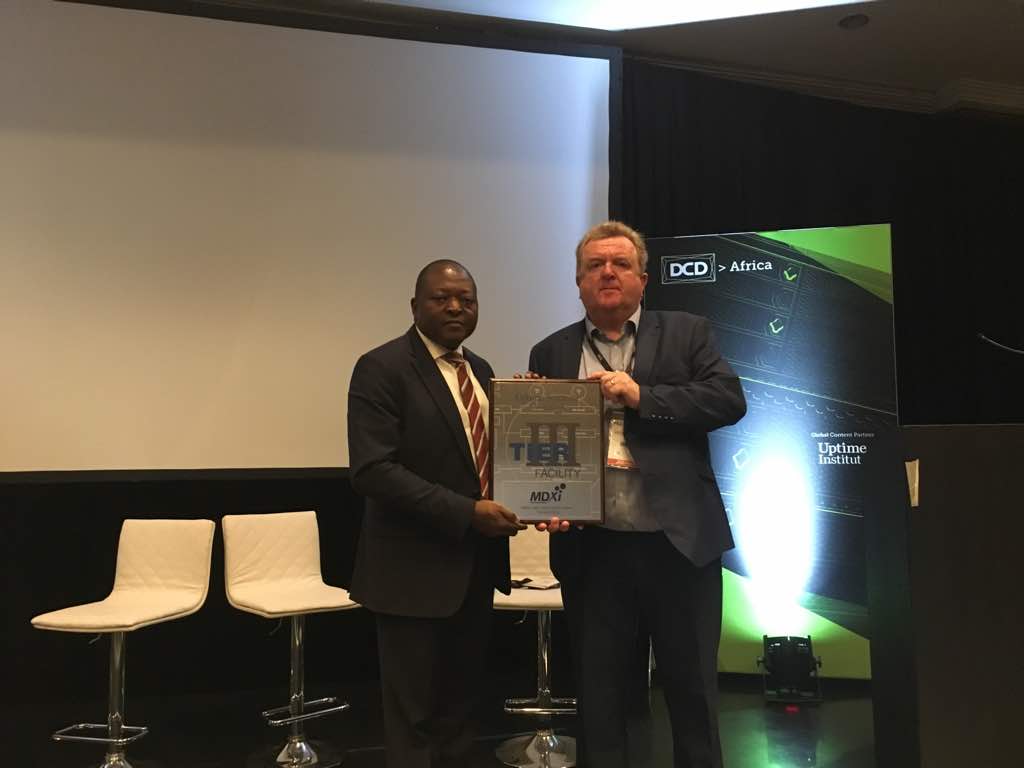General Manager of West Africa’s leading data centre company, MDXi, Mr. Gbenga Adegbiji has reiterated the importance of edge data centres to enable African consumers enjoy improved online experiences with much reduced latency, while significantly reducing transit costs.
Relying on ACG Research (a Telecoms analyst and consulting firm) report that estimates that caching content locally in a metro with a population of about 1 million can lead to a 50 percent cost reduction over the long-haul transport method, within a five-year span, he challenged the continent’s leading content and application providers to take advantage of the growing edge data centre ecosystem to exchange traffic on the continent.
He noted that this would significantly lower costs, improve performance of the existing content ecosystem and enable new technology use cases in Africa such as Electronic Gaming, Internet of Things, Artificial Intelligence and Big Data.
Explaining more during his plenary presentation on the topic ‘Deploying at the Edge – Bringing content closer to West African eyeballs”, during the just concluded Data Centre Dynamics Conference in Johannesburg, South Africa, Adegbiji said Africa boasts some of the biggest opportunities; a population of 1.3billion people, the fastest growing digital consumer market, estimated to reach 600 million within the next seven years and 6-7% GDP growth by 2020.
He emphasized that most of the typical concerns about Africa have been resolved; local data centres have leapfrogged power supply issues by bypassing traditional transmission and distribution bottlenecks with direct grid connections; local colocation facilities are being built to meet hyperscale requirements and a few indigenous data centres sport industry awards and global recognitions such as the Payment Card Industry Data Security Standards (PCI-DSS), Uptime Institute’s Tier III Constructed Facility certification (TCCF) as well as ISO 9001 and 27001 certifications.
Adegbiji also noted the increased investments and growth in last-mile fibre infrastructure and the rise of home-grown companies building open-access networks to foster interconnection opportunities.
Reiterating that most issues with latency cannot be solved with technology alone due to geography, Adegbiji urged global players to augment their data centre portfolios with edge deployments especially in Nigeria, to drive more value from the Internet. “With Africa’s largest economy (90% of Anglophone West Africa’s GDP), third most populous nation by 2050, and 8th global internet user country with 45% of Africa’s internet users, Nigeria is a natural and strategic destination for West Africa-focused hyper scale players to offer real-time data processing at the edge. With robust Internet Exchange Points and access via local interconnection points, data centres such as MDXI provide a platform for different networks to directly interconnect with other operators and exchange traffic in Nigeria to guarantee lower bandwidth costs and improved margins for content owners and OTTs, quicker access to more content providers and carriers as well as lower latency and improved experience for local users”, he said.
He also highlighted that MDXi is building a Data Centre ecosystem across West Africa with investments in its Tier III Lekki Data Centre in Lagos and upcoming investments in in Sagamu – Ogun State, Accra – Ghana, Abidjan – Cote D’Ivoire and Dakar – Senegal. “We remain committed to enabling West Africa’s digital transformation with investments in fibre infrastructure and data centres”, Adegbiji averred.









